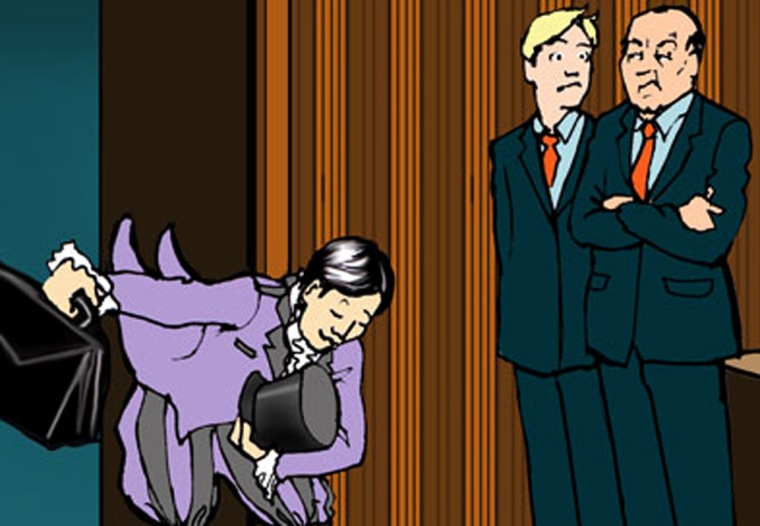The decision not to hire a perfectly qualified candidate for a senior accounting position at the supermarket chain Giant Food came down to a simple detail for human resources manager Deidra Adams: The job candidate wore a suit — a very nice one, in fact — but no tie. No tie meant no job.
Adams wasn't critiquing his fashion sense. She felt it was a red flag about his decision-making process. "It could have been a fashion statement," says Adams, now an HR manager for a home building firm. "But he knew he was interviewing with me, the controller and the CFO. It raised the question of judgment."
We may work in a world of corporate casual, but that doesn't extend to all job interviews. Despite a recent Yahoo! Hot Jobs survey that reported 25 percent of HR managers think wearing a suit to a job interview is too formal, the bosses and experts we talked to strongly disagreed.
"The way you dress in an interview says, 'I respect your position enough for me to dress up even if the company is business casual,'" says Arthur Drago, founder of the Florida-based executive search firm Strategic Alliance Group. What gives? Has interview attire gone the way of corporate casual, or is that a surefire way to get rejected?
What you wear should be tailored to the company you're interviewing at. Susan Vobejda, a career expert at Yahoo! Hot Jobs, explains that companies that don't require business suits for interviews tend to be in creative fields such as publishing, public relations and advertising. HR managers in those fields say job candidates can shed their suits in favor of business casual. That means slacks, a button-down shirt with a jacket for men, or slacks or a skirt with a button-down blouse or sweater for women. Vobejda also mentions information technology as an industry where candidates can wear business casual for the interview.
But that's not what Sandy Hubert, president of Elite IT Services in St. Louis, says. "It is essential for job candidates to wear a business suit here," she says. "First impressions are everything."
True. That's why Vobejda and many recruiters recommend calling ahead to HR managers to find out the proper attire. Otherwise, a less formal company may interpret a candidate wearing a suit to mean that he or she didn't research the company's culture. "For some companies, it could hurt you," she says.
For some companies, style is far less important than skill. That's true for Jonathan Elster, executive vice president at SED International, a computer hardware and consumer electronic equipment wholesaler in Atlanta. "It's not about what the person is wearing," Elster says. "It's more about the candidate and what he or she brings to the table."
Elster also thinks it's silly to make job candidates — who will spend the bulk of their time calling clients from their desks — wear uncomfortable suits. People are nervous enough during an interview, he says; they should be physically comfortable. He recommends slacks and a button-down top for men and women. "I've had people interview for a sales job and [made] them take their tie off," he says.
Still, more formal fashions have their place at work. The trick is to wear something that fits into the corporate culture you're hoping to be a part of. Fail to fit in, and you could end up like the job candidate Arthur Drago interviewed. Drago, of Strategic Alliance Group, nicknamed him "The Butler."
The Butler was a New Yorker interviewing at a brokerage firm in San Francisco that had a laid-back atmosphere. After the first interview, to which he wore a suit, he was told he could come back more casual, perhaps in a button-down shirt with a pair of slacks. Despite being given the suggestion to dress down, he went through three rounds of interviews, each time wearing a suit.
Ultimately, The Butler's substance trumped his stylistic faux pas. He got the job, Drago says, but "on the offer letter we sent him, we made a joke saying: 'No suits allowed in the office.'"
